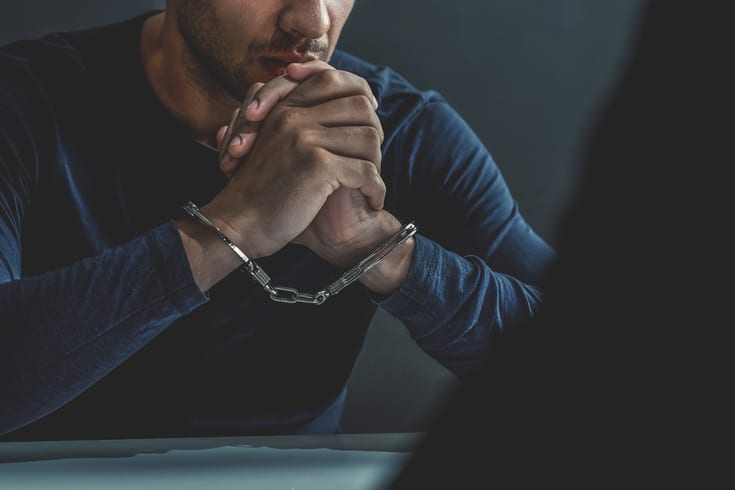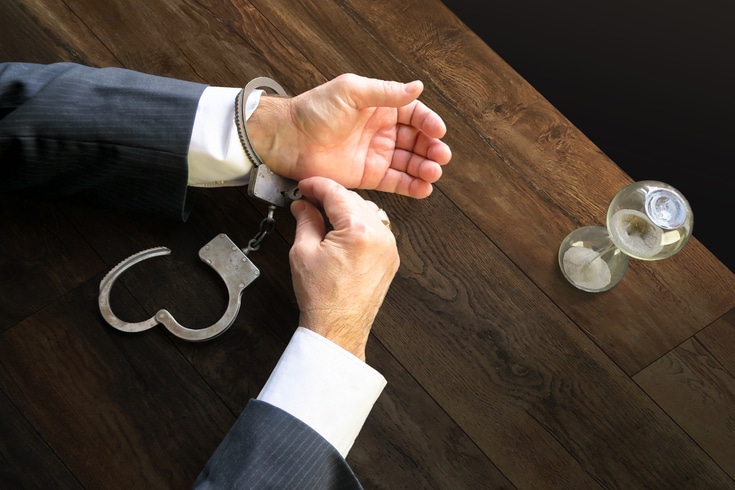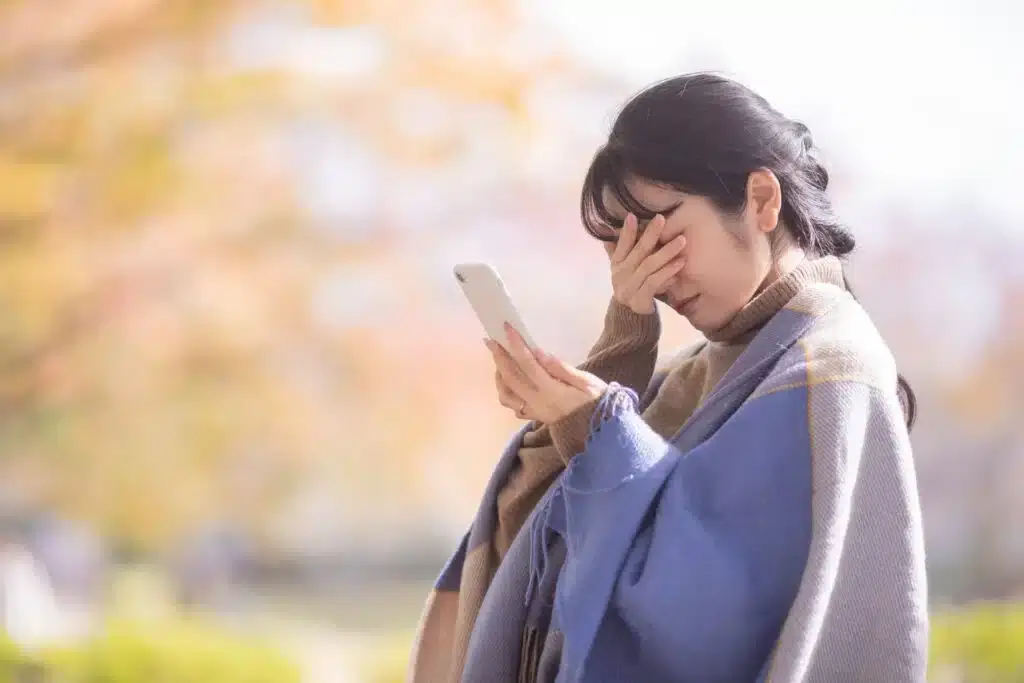Does Defamation After Non-Prosecution Following Arrest Constitute Libel in Japanese Law?

“Defamation” refers to the act of spreading baseless rumors about others, damaging their reputation. If certain conditions are met, you may be subject to claims for damages for defamation or criminal penalties.
However, recently, thoughtless defamation, primarily on easily accessible platforms like social media, has become a significant societal issue.
On our site, we have covered defamation from various angles, including the requirements for establishing defamation, legal measures against defamation, how to write a damage report, how to identify the poster, and how to delete defamatory comments.
In this article, we will discuss whether or not a case falls under “defamation” as defined in the Japanese Penal Code, in the event that a suspect mentioned in an arrest article is not prosecuted. We will explain this based on precedents.
What is a Non-Prosecution?
Firstly, many people may have the impression that non-prosecution equals innocence, meaning that one is not prosecuted because they are innocent. Therefore, let’s explain the basics about non-prosecution.
Non-prosecution is when a prosecutor, after considering a crime, decides that there is no need to seek a court’s judgment and does not prosecute. The reasons for non-prosecution include ‘no suspicion’, ‘insufficient suspicion’, and ‘prosecution suspended’.
No Suspicion
No suspicion means that as a result of the investigation, there is no evidence to confirm that the suspect is the perpetrator, in other words, there is no suspicion.
Insufficient Suspicion
Insufficient suspicion means that while there is suspicion that the suspect is the perpetrator, there is not enough evidence to prove the crime.
Prosecution Suspended
Prosecution suspended means that while there is enough evidence to prove the crime, considering various circumstances such as the lightness of the crime, deep remorse and possibility of rehabilitation, settlement with the victim, and the presence or absence of social sanctions, the prosecution is postponed.
Difference Between Non-Prosecution and Acquittal
“Non-prosecution” refers to the decision not to put a suspect on trial, while “acquittal” is a term used when a trial has been conducted and a verdict of not guilty has been confirmed. These are entirely different terms.
Furthermore, within non-prosecution, there are cases such as “no suspicion” and “insufficient suspicion” where it would be difficult to obtain a guilty verdict in court, which are close to acquittal. However, “prosecution suspended” implies that there is evidence that can prove the crime, and there is a possibility of a guilty verdict if a trial is conducted. Therefore, even within non-prosecution, the meaning varies depending on the reason.
Defamation Case Precedents

Let’s discuss whether or not news reports of an arrest can be considered defamation if the arrested person is not indicted, based on past defamation cases and court judgments.
The first case we will look at involves a civil lawsuit where a business operator was reported and documentarily indicted on suspicion of fraud and business law violations. The operator was not prosecuted, and claimed that their reputation was damaged by newspaper reports, leading them to seek damages.
Defamation in Cases Where the Suspect is Not Prosecuted
Trader X was accused of fraud and violation of the Japanese Building Lots and Buildings Transaction Business Act by buyer A in relation to the sale of a hospital in February of Heisei 5 (1993). The case was then referred to the prosecutor’s office.
Y Newspaper published an article on October 20th of the same year stating that Trader X was referred to the prosecutor’s office on suspicion of swindling a deposit of 3 million yen without disclosing that a large amount of collateral was set on the hospital in question. Subsequently, Trader X was not prosecuted, won a civil lawsuit filed by A, and in Heisei 9 (1997), filed a lawsuit against Y Newspaper seeking damages.
The first instance judgment was,
Although the article by Y Newspaper is anonymous, it can almost identify Trader X, and the content of the suspected facts is described in detail and specifically. The headline emphatically asserts “In the sale of a hospital with a large amount of collateral” and “Takes a deposit of 3 million yen”, giving the impression that there is a strong suspicion of fraud and violation of the business law, which has lowered the social evaluation of Trader X and damaged his reputation. However, no proof of truthfulness has been made, and there is no substantial reason to have mistaken the truth.
Sendai District Court, July 22, Heisei 9 (1997) Judgment
As a result, Y Newspaper was ordered to pay 600,000 yen.
The judgment of the court to which Y Newspaper appealed, dissatisfied with the first instance judgment, was,
This article damages the reputation of Trader X as indicated in the first instance judgment. In reporting on the referral of a complaint case, it is required to be careful in expression as it includes cases that are not prosecuted. The content of the article strongly impresses that the facts of suspicion are backed by investigations by investigative agencies and interviews, and that the suspicion is strong. Therefore, the subject of proof of truthfulness is that the suspicion is backed by investigations and is strong, but no such proof has been made.
Also, Y Newspaper’s coverage did not get the impression from the local police station that the suspicion was strong, and it did not hear anything from the related parties, so it cannot be recognized that there is a substantial reason to have mistaken the truth.
Sendai High Court, June 26, Heisei 10 (1998) Judgment
As a result, it was determined that the amount of damage to Trader X was appropriate at 600,000 yen, and Y Newspaper’s appeal was dismissed as there was no reason.
Legality in this Case
Japanese Penal Code Article 230 (Defamation)
1. Anyone who publicly states a fact and damages a person’s reputation, regardless of the truth of the fact, shall be punished by imprisonment for up to 3 years or a fine of up to 500,000 yen.
2. Anyone who defames the honor of the deceased shall not be punished unless it was done by stating a false fact.
In Article 230 of the Penal Code, the three elements required for defamation to be established are as follows:
- Publicly ⇨ In a way that an unspecified number of people can know
- Stating a fact ⇨ Citing a specific fact (※ The truth of the fact is not an issue)
- Damaging a person’s reputation ⇨ Creating a situation where a person’s social evaluation may be harmed
For more details on the requirements for defamation, please refer to the following article.
https://monolith.law/reputation/defamation[ja]
In this case, the article by Y Newspaper easily identifies the trader X and specifically states the suspected facts, giving the impression that the suspicion is strong, and it can be said that it has damaged the social evaluation and reputation of trader X, fulfilling the requirements for defamation.
However, defamation is not illegal if there is a “justifiable reason” as defined in Article 230-2 of the Penal Code, but even if the purpose of Y Newspaper’s report was “to serve the public interest”, it does not apply because no proof of truth has been made.
Thus, when a news organization covers a suspect’s document submission, it is likely to be accused of defamation if it gives the impression of guilt without proving the truth, regardless of whether or not the case is dropped.
Defamation in Cases Where the Suspect is Acquitted

The second case involves a suspect who was found guilty in the first trial, acquitted in the appeal trial, and then sought damages for defamation against the person who made statements about the charges.
B, the president of H Telephone Co., Ltd., was indicted for embezzlement of company funds and embezzlement of company-owned artworks brought home. In the first trial verdict on April 26, 1985 (Showa 60), he was found partially guilty and partially not guilty.
A, a professor at H University’s Faculty of Law, in his book “The Story of Bribes” published on February 25, 1986 (Showa 61), specifically described the president B’s “embezzlement of company funds” based on the first trial verdict, commented that he had completely blurred the lines between public and private, and also mentioned the actions that were found not guilty.
In the appeal trial verdict on March 12, 1991 (Heisei 3), all of President B’s “embezzlement of company funds”, which the first trial verdict found partially guilty, were acquitted, and only a part of “embezzlement of company-owned artworks brought home” was found guilty. The appeal trial verdict was finalized.
President B claimed that the article “The Story of Bribes” defamed his honor and demanded damages from Professor A. In the first trial, the court recognized Professor B’s liability for tort due to defamation of President B and ordered Professor B to pay 500,000 yen in damages.
The court’s judgment against Professor B, who appealed this, was,
Defamation, if the act pertains to facts of public interest and its purpose is solely to serve the public interest, is not illegal if there is proof that the facts indicated are true in their important parts. Even without proof of truth, if there is a reasonable reason for the actor to believe it to be true, there is no intent or negligence in the act and no tort is established.
Unless there are special circumstances, even if a different recognition judgment is made in the appeal trial later, it should be said that there is a reasonable reason to believe the facts indicated to be true when Professor A indicated the facts shown in the criminal first trial judgment of President B and the facts recognized in the judgment reasons.
Since it is understood that there is an identity between the facts recognized in the criminal first trial judgment of President B and the facts indicated by Professor A in “The Story of Bribes”, no intent or negligence can be recognized in Professor A.
Supreme Court Judgment, October 26, 1999 (Heisei 11)
Thus, it was determined that Professor A’s tort due to defamation was not established.
Legality in this Case
Japanese Penal Code Article 230-2 (Special Cases Involving Public Interest)
⒈ If the act in the preceding article pertains to a fact related to the public interest, and its purpose is solely to promote public welfare, it will not be punished if the truth of the fact is judged and proven.
⒉ For the application of the provisions of the preceding paragraph, facts related to the criminal acts of persons who have not been prosecuted are considered facts related to the public interest.
⒊ If the act in the preceding article pertains to a fact related to a public official or a candidate for public office by public election, it will not be punished if the truth of the fact is judged and proven.
This case was judged to fall under the exception of illegality when the act of defamation was committed with the “purpose of promoting public welfare” and when there was “proof of truth”. Even if the suspect was acquitted for the part pointed out after the act of defamation, it was deemed not illegal.
The judgment considered the content of the first trial in the criminal case as “a reasonable reason to believe the fact to be true”, equivalent to the “proof of fact” in Article 230-2, Paragraph 1 of the Penal Code.
For more details on the rejection of illegality in defamation, please refer to the article below.
https://monolith.law/reputation/libel-law-utility[ja]
Conclusion
In today’s world, where social networking sites such as Facebook, Twitter, Instagram, and LINE are deeply ingrained in our daily lives, it’s unpredictable when one might become a victim of defamation due to slanderous remarks.
However, once you become involved in such a situation, it’s necessary to consider various factors such as the requirements for defamation to be established, factors that inhibit illegality, and the circumstances at the time of the act.
For such delicate matters, it’s recommended not to handle them alone. Instead, consult with a law firm that has specialized legal knowledge and extensive experience as soon as possible, and receive appropriate advice.
Category: Internet





















